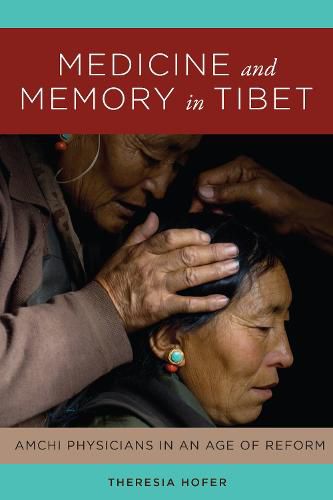Readings Newsletter
Become a Readings Member to make your shopping experience even easier.
Sign in or sign up for free!
You’re not far away from qualifying for FREE standard shipping within Australia
You’ve qualified for FREE standard shipping within Australia
The cart is loading…






Open-access edition: DOI 10.6069/9780295743004
Only fifty years ago, Tibetan medicine, now seen in China as a vibrant aspect of Tibetan culture, was considered a feudal vestige to be eliminated through government-led social transformation. Medicine and Memory in Tibet examines medical revivalism on the geographic and sociopolitical margins both of China and of Tibet’s medical establishment in Lhasa, exploring the work of medical practitioners, or amchi, and of Medical Houses in the west-central region of Tsang.
Due to difficult research access and the power of state institutions in the writing of history, the perspectives of more marginal amchi have been absent from most accounts of Tibetan medicine. Theresia Hofer breaks new ground both theoretically and ethnographically, in ways that would be impossible in today’s more restrictive political climate that severely limits access for researchers. She illuminates how medical practitioners safeguarded their professional heritage through great adversity and personal hardship.
$9.00 standard shipping within Australia
FREE standard shipping within Australia for orders over $100.00
Express & International shipping calculated at checkout
Open-access edition: DOI 10.6069/9780295743004
Only fifty years ago, Tibetan medicine, now seen in China as a vibrant aspect of Tibetan culture, was considered a feudal vestige to be eliminated through government-led social transformation. Medicine and Memory in Tibet examines medical revivalism on the geographic and sociopolitical margins both of China and of Tibet’s medical establishment in Lhasa, exploring the work of medical practitioners, or amchi, and of Medical Houses in the west-central region of Tsang.
Due to difficult research access and the power of state institutions in the writing of history, the perspectives of more marginal amchi have been absent from most accounts of Tibetan medicine. Theresia Hofer breaks new ground both theoretically and ethnographically, in ways that would be impossible in today’s more restrictive political climate that severely limits access for researchers. She illuminates how medical practitioners safeguarded their professional heritage through great adversity and personal hardship.